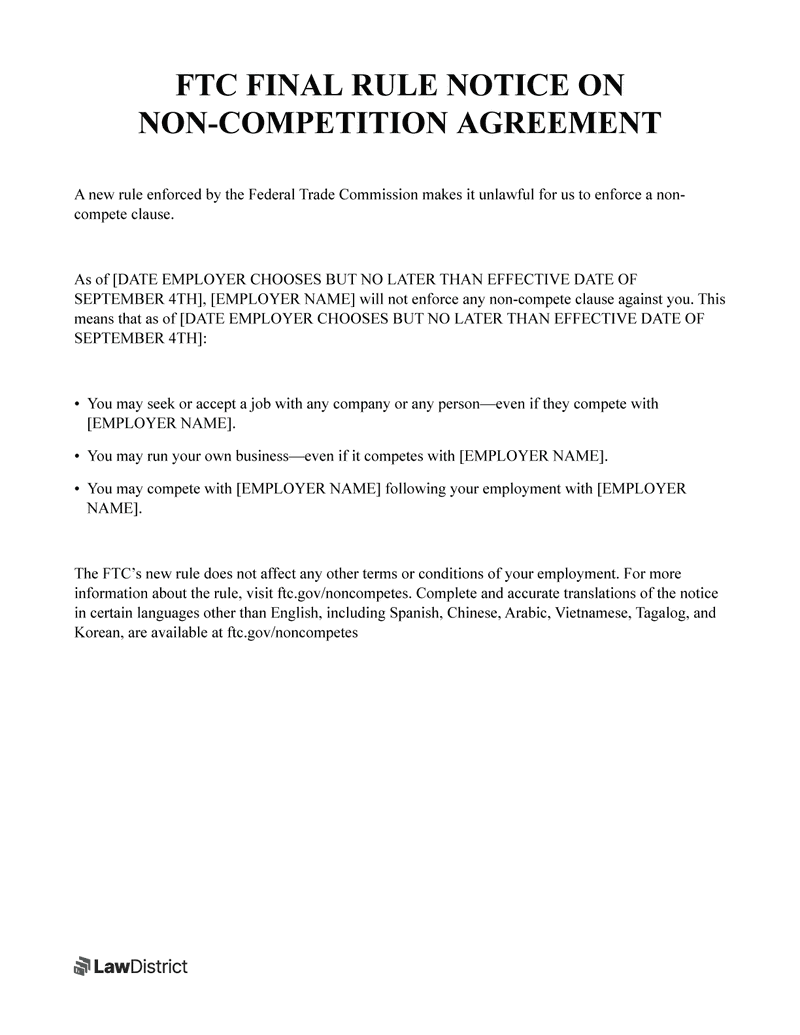The FTC's new rule generally prohibits non-compete agreements, but there are key exceptions that permit their use under specific circumstances:
Senior Executives
This exception applies to senior executives with an existing non-compete agreement involved in key decisions.
Senior executives are defined as individuals who (1) were “in a policy-making position” and (2) received a total annual compensation of at least $151,164 in the preceding year.
Bona Fide Business Sale Exception
Non-competes during the sale of a business by a substantial owner of, or substantial member or substantial partner in, the business entity are permitted by this exception.
Existing Causes of Action
The rule does not apply to a cause of action related to a non-compete clause that accrued before the effective date.
Other Significant Exceptions
The rule does not apply to entities not subject to the jurisdiction of the FTC, such as non-profit organizations.
The not-for-profit jurisdictional exemption requires that there be an adequate nexus between an organization’s activities and its alleged public purposes and that its net proceeds be properly devoted to recognized public, rather than private, interests.
Additionally, the rule does not apply to franchisee/franchisor contracts.
These exceptions are designed to balance the protection of workers' employment mobility with the need for businesses to protect sensitive information and investments in certain high-stakes situations.
